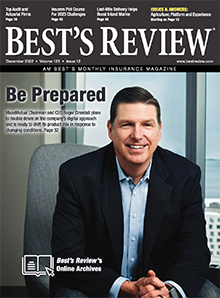Driverless Cars and Insurance
How Driverless Cars Affect the Auto Insurance Industry
by James Chang, FCAS, CPCU, ARe, MAAA and Kim E. Piersol, FCAS, MAAA
The American public has mixed feelings about giving up control of their cars’ steering wheels. Despite the enthusiasm with which autonomous vehicles are being developed by auto manufacturers and technology companies, recent polls show that few drivers are interested in autonomous vehicle technology despite the potential safety and time-saving benefits.
Auto insurers are already thinking about how self-driving cars will affect them even though it might be a long time before we see them regularly on the road. From the invention of the horseless carriage in 1890’s, car insurance has evolved from simple handwritten contracts to the high-tech global industry that it is today.
The transition to driverless cars will create the need for more personal coverage and to increase the need for more commercial insurance as car manufacturers will assume much of the risk for this new technology. However, it is too soon to completely know what the insurance strategy will be now since it could be 25 to 30 years before we transition to driverless cars.
Currently, technology companies and auto manufacturers are capturing data, and that data can be used for actuarial models. Insurers will also need to form partnerships with the winners in the autonomous vehicle space. Insurers are having conversations with the autonomous vehicle providers to solve problems points and lot of benefits are to be gained through these partnerships.
We can speculate where the commercial liability responsibility lies for autonomous vehicle accidents. The responsibility for liability becomes complicated when multiple parties are involved in an accident. The fault can be divided between consumer, manufacturer, and software maker. Manufacturers may be required to purchase insurance for their vehicles in the future. There may be a battle between the manufacturer and insurance company to see who pays for the accident. Other trends driverless cars can have on the insurance industry include dropping of insurance premium as accidents decline and more drivers could reduce or drop coverage.
There could be new lines of business created as a result from driverless cars. Cybersecurity, such as protection against remote vehicle theft, ransomware, coverage for identity theft, and theft or misuse of personal data will emerge as well as product liability for software and sensors and public infrastructure insurance for cloud server systems that manage traffic and road network.
Industry experts conclude that insurers can take key steps in preparation of a driverless future.
- Build expertise in big data and analytics; insurers must be able to harness the data generated by autonomous vehicles and systems that support them.
- Develop the actuarial modeling framework by utilizing advanced actuarial modeling techniques as they adapt to the autonomous vehicle features.
- Collaborate with automakers, software developers, governmental entities, manufacturers and the like to share data and expertise.
The business model will change as the auto insurance risks change followed by insurance policy changes.

